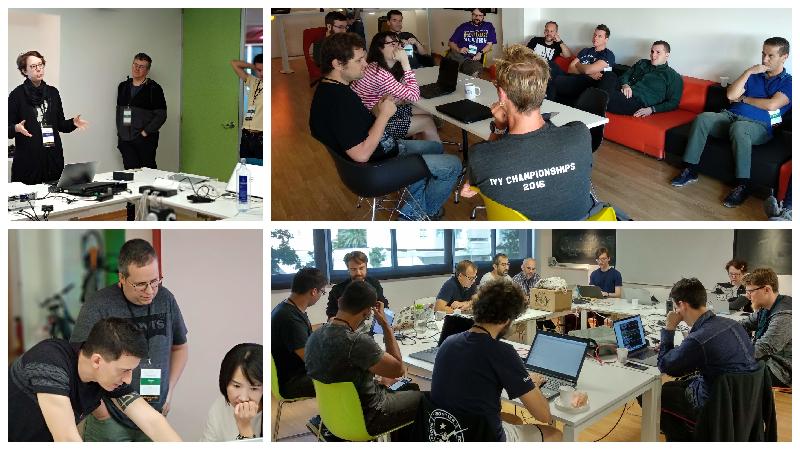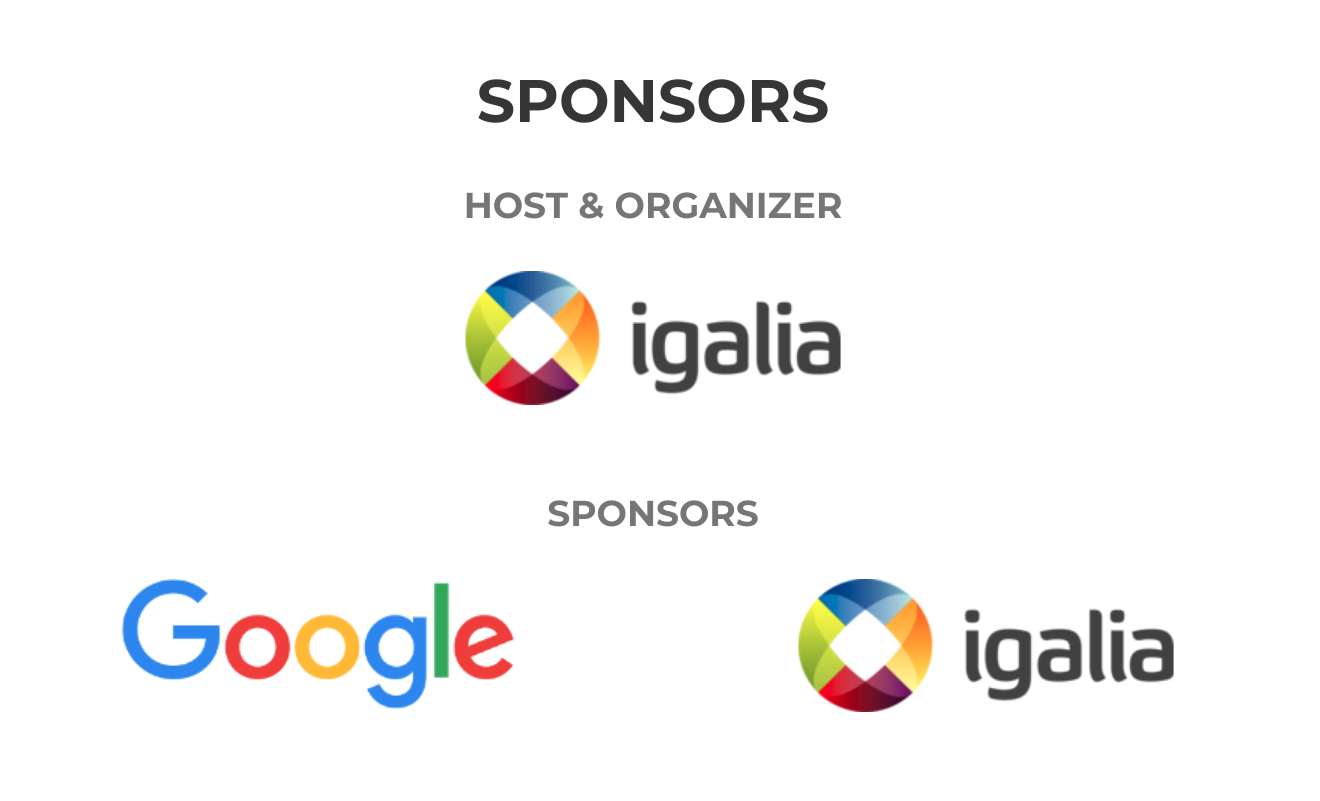
Web Engines Hackfest 2018
One year more and a new edition of the Web Engines Hackfest was arranged by Igalia. This time it was the tenth edition, the first five ones using the WebKitGTK+ Hackfest name and another five editions with the new broader name Web Engines Hackfest. A group of igalians, including myself, have been organizing this event. It has been some busy days for us, but we hope everyone enjoyed it and had a great time during the hackfest.
This was the biggest edition ever, we were 70 people from 15 different companies including Apple, Google and Mozilla (three of the main browser vendors). It seems the hackfest is getting more popular, several people attending are repeating in the next editions, so that shows they enjoy it. This is really awesome and we’re thrilled about the future of this event.
Talks #
The presentations are not the main part of the event, but I think it’s worth to do a quick recap about the ones we had this year:
-
Behdad Esfahbod and Dominik Röttsches from Google talked about Variable Fonts and the implementation in Chromium. It’s always amazing to check the possibilities of this new technology.
-
Camille Lamy, Colin Blundell and Robert Kroeger from Google presented the Servicification effort in the Chromium project. Which is trying to modularize Chromium in smaller parts.
-
Žan Doberšek from Igalia gave an update on WPE WebKit. The port is now official and it’s used everyday in more and more low-end devices.
-
Thibault Saunier from Igalia complemented Žan’s presentation talking about the GStreamer based WebRTC implementation in WebKitGTK+ and WPE ports. Really cool to see WebRTC arriving to more browsers and web engines.
-
Antonio Gomes and Jeongeun Kim from Igalia explained the status of Chromium on Wayland and it’s way to become fully supported upstream. This work will help to use Chromium on embedded systems.
-
Youenn Fablet from Apple closed the event talking about Service Workers support on WebKit. This is a key technology for Progressive Web Apps (PWA) and is now available in all major browsers.
The slides of the talks are available on the website and wiki. The videos will be published soon in our YouTube channel.
 Some pictures from Web Engines Hackfest 2018 (Flickr album)
Some pictures from Web Engines Hackfest 2018 (Flickr album)
Other topics #
During the event there were breakout sessions about many different topics. In this section I’m going to talk about the ones I’m more interested on.
-
Web Platform Tests (WPT)
This is a key topic to improve interoperability on the web platform. Simon Pieters started the session with an introduction to WPT just in case someone was not aware of the repository and how it works. For the rest of the session we discussed the status of WPT on the different browsers.
Chromium and Firefox are doing an automatic two ways (import/export) synchronization process so the tests can be easily shared between both implementations. On the other side WebKit still has some kind of manual process over the table, neither import or export is totally automatic, there are some scripts that help with the process though.
Apart from that, WPT is a first-class citizen in Chromium, and the encouraged way to do new developments. In Firefox it’s still not there, as the test suites are not run in all the possible configurations yet (but they’re getting there).
Finally the WPT dashboard is showing results for the most recent unstable releases of the different browsers, which is really cool despite being somehow hidden on the UI: https://wpt.fyi/results/?label=experimental.
-
LayoutNG
Christian Biesinger gave an introduction to LayoutNG project in Blink, where Google is rewriting Chromium’s layout engine. He showed the main ideas and concepts behind this effort and navigated the code showing some examples. According to Christian things are getting ready and LayoutNG could be shipping in the coming months for inline and block layout.
On top of questions about LayoutNG, we briefly mentioned how other browsers are also trying to improve the layout code: Firefox with Servo layout and WebKit with Layout Formatting Context (LFC) aka Layout Reloaded. It seems quite clear that the current layout engines are getting to their limits and people are looking for new solutions.
-
Chromium downstream
Several companies (Google included) have to maintain downstream forks Chromium with their own customizations to fit their particular use cases and hardware platforms.
Colin Blundell was explaining how it was the process of maintaining the downstream version of Chrome for iOS. After trying many different strategies the best solution was rebasing their changes 2-3 times per day. That way the conflicts they had to deal with were much simpler to resolve, otherwise it was not possible for them to cope with all the upstream changes. Note that he mentioned that one (rotatory) full-time resource was required to perform this job in time.
It was good to share the experiences of different companies that are facing very similar issues for this kind of work.
Thank you very much #
Just to close this post, big thanks to all the people attending the event, without you the hackfest wouldn’t have any sense at all. People are key for this event where discussions and conversations are one of the main parts of it.
Of course special acknowledgments to the speakers for the hard work they put on their lovely talks.
Finally I couldn’t forget to thank the Web Engines Hackfest 2018 sponsors: Google and Igalia. Without their support this event won’t be possible.
 Web Engines Hackfest 2018 sponsors: Google and Igalia
Web Engines Hackfest 2018 sponsors: Google and Igalia
Looking forward for a new edition!
- Previous: Short 2018-10-05
- Next: Short 2018-10-10